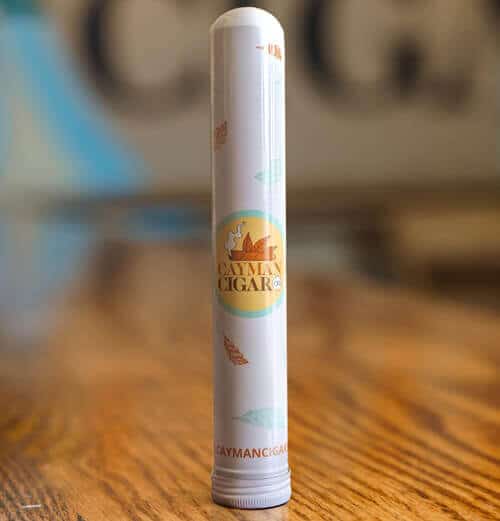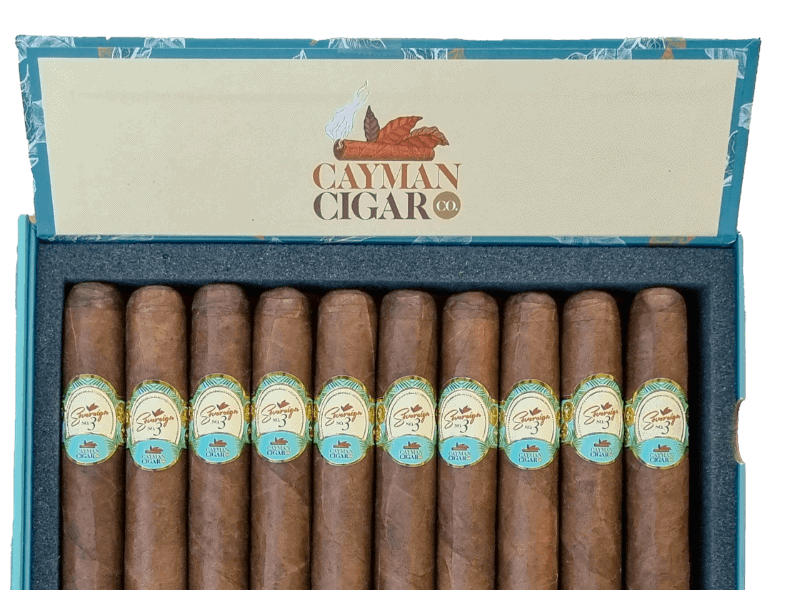Sustainable Practices in Cigar Manufacturing: Composting
Home » Sustainable Practices in Cigar Manufacturing: Composting

As climate change looms, more companies are switching to using more sustainable practices. This is for their manufacturing processes, and the cigar manufacturing industry is not left behind. Sustainable practices in manufacturing are designs and approaches for lessening the industry’s carbon footprint and adopting climate-friendly practices. Sustainable manufacturing requires considering the life cycle of the products being designed and the manufacturing process’s environmental impact.
Composting is an important sustainable manufacturing process. It reduces waste considerably while improving the ecological footprint of the cigar manufacturing industry.
Here, we will examine the importance of composting in the cigar industry. Moreover its advantages, methods used, and real-world applications of this method.
The Importance of Sustainable Practices in Cigar Manufacturing
The traditional process of cigar manufacturing involves a great number of steps, namely:
- Cultivation of tobacco: This is primarily done in places such as the Dominican Republic, Cuba, Honduras, and Nicaragua. This stage involves seed selection, growing of seedlings and transplanting to fields, growing the plants and harvesting them.
- Curing: In this process, the tobacco leaves lose their moisture in preparation for fermentation. Curing can be done by air, fire, flue, and sun.
- Fermentation: This process is important for improving the flavor of the tobacco. Here, the leaves are heaped and rotated periodically to achieve uniform fermentation.
- Sorting and aging: After fermentation, the leaves are sorted by size, color, and quality. Then, it aged to enhance both flavor and aroma.
- Rolling: This is the final stage. The tobacco leaves are rolled by hand and sent out for purchase by cigar aficionados across the globe.
Adopting sustainable tobacco cultivation brings substantial benefits by improving agricultural practices and supporting environmental health. Key trends focus on boosting biodiversity, reducing chemical inputs, and using ecological methods. These practices help prevent soil degradation and minimize chemical use, thereby protecting and preserving ecosystems. Techniques such as organic farming, integrated pest management, crop rotation, diversification, and composting are essential components of sustainable agriculture.
Understanding Composting: A Key Sustainable Practice
Composting is a controlled process that converts organic materials like food scraps, yard waste, and other biodegradable materials. It converts it into nutrient-rich soil amendment or mulch, called compost. In this process, microorganisms like bacteria and fungi feed on the materials in the compost pile, using oxygen, carbon, water, and nitrogen to grow, reproduce, respire, and digest the materials in the compost pile. Composting can be done in both large and small-scale facilities and in machines called anaerobic digesters.
Composting is a controlled process with the following steps:
- The organic materials are from various sources. In this case, the biodegradable matter from the harvest of the tobacco plants will be collected. It will be by shredding or chopping the material. This will increase the surface area for the action of the microorganisms.
- The compost pile is set by layering nitrogen-rich materials and carbon-rich materials. It will be increasing the moisture content to the optimal range of 40-60% by adding water.
- Aeration of the pile is important to introduce oxygen to the pile. This is by turning the pile regularly. Oxygen is important in this process as it supports the growth of the bacteria and fungi. It helps to decompose the biodegradable substances and turn them to compost.
- The active composting stage consists of three phases. This is where two different groups of microorganisms break down the substances in three stages.
- After the breakdown, the pile should be allowed to cure and mature to ensure that the compost is fully decomposed. This waiting period ensures that the compost is not toxic to plants.
- The compost is ready. Good compost is dark, crumbly, has an earthy smell, and is rich in humus.
Methods of Composting in the Cigar Industry
The cigar industry can make use of both industrial and on-farm composting. This is to create nutritious compost to replenish the nutrients in the soil and achieve cigar sustainability, producing eco-friendly cigars.
Industrial composting applies the following techniques to create compost for the cigar industry:
Windrow Composting:
An open-air process that places the composting materials into five-feet-high long piles windrows which are turned regularly to ensure even distribution. It is an open-air process and is often to control odor from the decomposing material. Large volumes of tobacco leaves and stems can be effective with this technique, and field residues can be collected after harvesting and composted in windrows.
In-vessel Composting:
Here, the composting takes place in a closed space. Its advantage is that it can process large amounts of material without taking up a lot of space. It is versatile and can be used for nearly any organic material, making it useful in other industries besides the cigar industry.
It involves feeding material into a drum or a silo for efficient control of environmental conditions. The material is by hand to ensure that oxygen is incorporated into the mix. This method is to compost high-value waste like tobacco leaves and smaller quantities of waste from the manufacturing process. The drawback of this method is that it takes a longer time to decompose, and the compost has to be left for seven days to mature to ensure that it is not phytotoxic.
Aerated Static Pile Composting:
In this technique, organic waste is mixed in a large pile which is aerated by adding bulking agents like wood chips and shredded newspapers in loose piles to allow for airflow from the top to the bottom of the pile. The pile can also be aerated by a network of pipes that deliver air to the pile using timed or temperature-sensitive blowers. This technique is used for organic waste from the fermentation stage of cigar production and for the recycling of biodegradable packing materials.
Benefits of Composting in the Cigar Industry
Composting is one of the sustainable practices that comes with a host of benefits for anyone who decides to commit to the process and better our planet. In the cigar manufacturing industry, these benefits include:
- Reducing waste. The cigar industry generates a very large amount of waste that directly impacts the environment. Composting will help to use up most of the organic waste and cut down on the amount of waste produced by this industry.
- Increasing the nutrients in the soil: Traditional tobacco farming practices leach nutrients from the soil at an alarming rate. Composting turns organic waste from cigar production into nutrient-rich compost that is used to increase the quality of the soil, reducing the need for chemical fertilizers and making the manufacturing process more sustainable.
- Reducing pollution: Proper composting can help to reduce the environmental impact of tobacco waste.
- Saves waste disposal dollars: Proper waste disposal is an important budget item for manufacturing companies. They have to ensure that their industrial waste is properly and ethically disposed of. Composting solves that issue as it helps to dispose of waste in a way that is helpful to the company and the environment. This ties into the principles of the circular economy. It is where waste materials are recycled and repurposed, bringing about economic gains and sustainable manufacturing and business practices.
Case Studies: Successful Composting Programs in the Cigar Industry
The ‘Green Revolution’ is here to stay. In building a more sustainable manufacturing process in the industry, some manufacturers have taken it upon themselves to refine the cigar manufacturing process.
Chief amongst them is Plasencia Cigars, a cigar company located in Honduras and Cuba, with a rich history dating back to the time their founder migrated from Spain to Honduras to grow tobacco. Plasencia utilizes a specialized form of composting called vermicomposting, that utilizes worms instead of microorganisms to break down the organic matter. The worms eat the organic waste and excrete it as worm castings, or vermicast, which are rich in nutrients and microorganisms. This produces high-quality compost, rich in nitrogen, phosphorus, and microorganisms that promote the health and quality of soil.
Joya Cigars, a Nicaraguan brand, uses compost to grow their tobacco crop. This ensures that precious nutrients are not being leached from the soil and that waste is being reused and recycled.
Cayman Cigars Company’s nonprofit partner Beacon Farms uses the Caribbean’s only commercial grade Aerated Static Pile (ASP) composting system. It is to produce the island’s best soil and seed beds for its experimental tobacco crops. Nutrient rich compost is created in 17 days instead of the traditional 6 months. A first for Grand Cayman and the Caribbean!
Future Trends in Sustainable Cigar Manufacturing: Eco-friendly Cigars for the Future
As the cigar industry jumps on the train of the green revolution and adapts to sustainable farming and manufacturing processes, some key future trends will be seen.
- Agricultural technology: With ever evolving technology, the cigar industry will rely on data-driven information and systems to enhance sustainability and increase eco-friendly resources. Robotics and technology will promote efficiency and reduce waste.
- Eco-friendly packaging: There is an increased shift toward more biodegradable packaging options in the cigar industry to reduce waste and produce more sustainable products for consumers.
- Circular economy practices: The cigar industry is traveling towards the circular economy model that emphasizes the three Rs: Reuse, Recycle, and Refurbish to reduce waste in the industry and contribute to sustainable production cycles.
Embracing Sustainable Innovation
The cigar manufacturing process, once a major source of greenhouse emissions and causing about 0.2 percent of the global carbon emissions, is slowly but surely turning away from these harmful practices and setting its course on the path to sustainability and eco-friendly manufacturing processes. Composting seems to be a relatively small step, but it is a step in the right direction as it offers immense benefits to the manufacturers and the climate, saving manufacturers dollars in waste processing fees, and providing a biodiverse lifecycle which ensures sustainability and enhanced crop quality.
Sustainable practices are here to stay, offering numerous benefits to both manufacturers and customers. A smart customer chooses a brand that shares their commitment to sustainability and ethical manufacturing and enjoys the rewards of that smart choice. It is time to make the choice to eco-friendly cigars to promote cigar sustainability.





